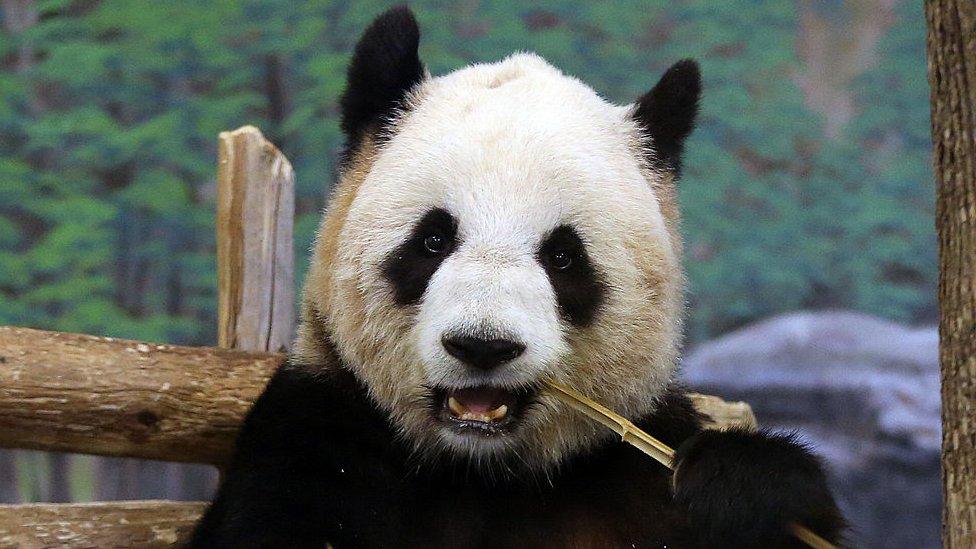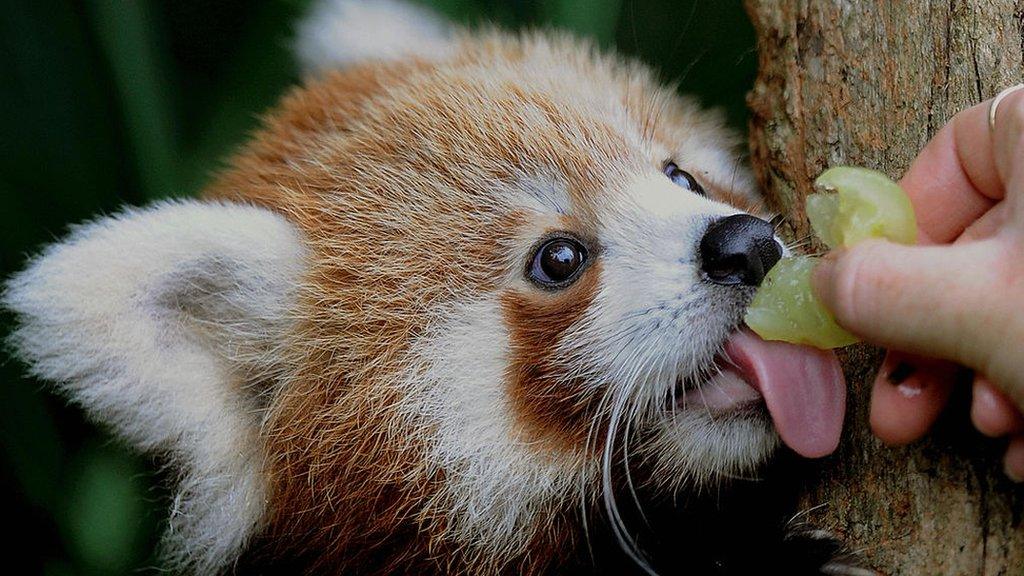Coronavirus: Canada zoo struggles to return pandas to China
- Published

Er Shun, above, and Da Mao spent time at the Toronto Zoo before being sent to Calgary
Two giant pandas are stranded in Canada with a looming bamboo shortage despite efforts to return them to China.
The Calgary Zoo says it has not yet been able to secure international travel permits to relocate Er Shun and Da Mao.
Pandas only eat fresh bamboo that the zoo had been importing from China, but coronavirus grounded most flights.
Since then, the zoo has been relying on trucking in a limited Canadian bamboo supply.
In May, the Calgary Zoo announced it would relocate the two animals back to China, where bamboo is local and in abundant supply.
But this week it said that, despite working with both the Canadian and Chinese governments, China has not approved international permits due to pandemic-related changes in its import laws and quarantine facilities.
"The continued delays in international permitting is putting the health and welfare of these two beautiful giant pandas in jeopardy," Calgary Zoo president Clément Lanthier said in a statement.
The zoo says the pandas are currently in good health and receiving "exceptional care".
The pandas arrived in Canada in 2014 and were due to stay for 10 years, as part of an agreement between Canada and China.
They were loaned to Canada six years ago as a sign of goodwill between the two countries, a gesture sometimes referred to as "panda diplomacy".
"We need to provide 40 kg of bamboo, per animal, per day"
It has become increasingly challenging to feed Er Shun, a female, and Da Mao, a male, the 40kg (88lbs) of bamboo they require daily. Bamboo makes up 99% of their diet.
The Alberta-based zoo has been bringing in bamboo from the neighbouring province of British Columbia, but that supply is expected to run out in September.
- Published22 October 2019

- Published26 February 2020
